
S+T+ARTS 2025.
Archipelago of Possible Futures—From AI Wars to Dual Futures:
Reclaiming Democracy in the Face of Authoritarian Tech
Ars Electronica Festival
Link to newsroom S+T+ARTS Prize 2025
Link to newsroom AI & Music Powered by S+T+ARTS
at Sónar Festival
Link to newsroom
Art and Innovation Come Together S+T+ARTS Day
at Ars Electronica Festival
Press Information August 20, 2025.
As part of this year’s Ars Electronica Festival, the Theme Symposium will present a full conference day titled “Archipelago of Possible Futures—From AI Wars to Dual Futures: Reclaiming Democracy in the Face of Authoritarian Tech.” Organized in collaboration with the STARTS Initiative, EIT Culture & Creativity, Archipelago of Possible Futures, Ars Electronica, and E-DIH AI5Production, the symposium addresses the rise of authoritarian technological infrastructures, Europe’s democratic alternatives, and visions and speculations for future technologies. Among the keynote speakers are the acclaimed artist and author Trevor Paglen and the STARTS Prize winning artist Sarah Ciston.
STARTS, Science, Technology and the Arts, is an initiative funded by the European Commission. The Ars Electronica Festival takes place in Linz (AT) September 3-7, 2025. (Header image: Domestic Data Streamers, Synthetic Memories, 2023. Photo credit: Photo: ©Domestic Data Streamers.)
Press images.
Download press images and credits below. Please note that the images are free to use strictly when writing about the STARTS Prize Winners and STARTS Day Conference and Exhibition at Ars Electronica Festival 2025.

S+T+ARTS Prize 2025 Honorary Mention 'Synthetic Memories' Domestic Data Streamers (ES). Photo: Domestic Data Streamers

Sarah Ciston. Photo credit:@PaigeZangoglia
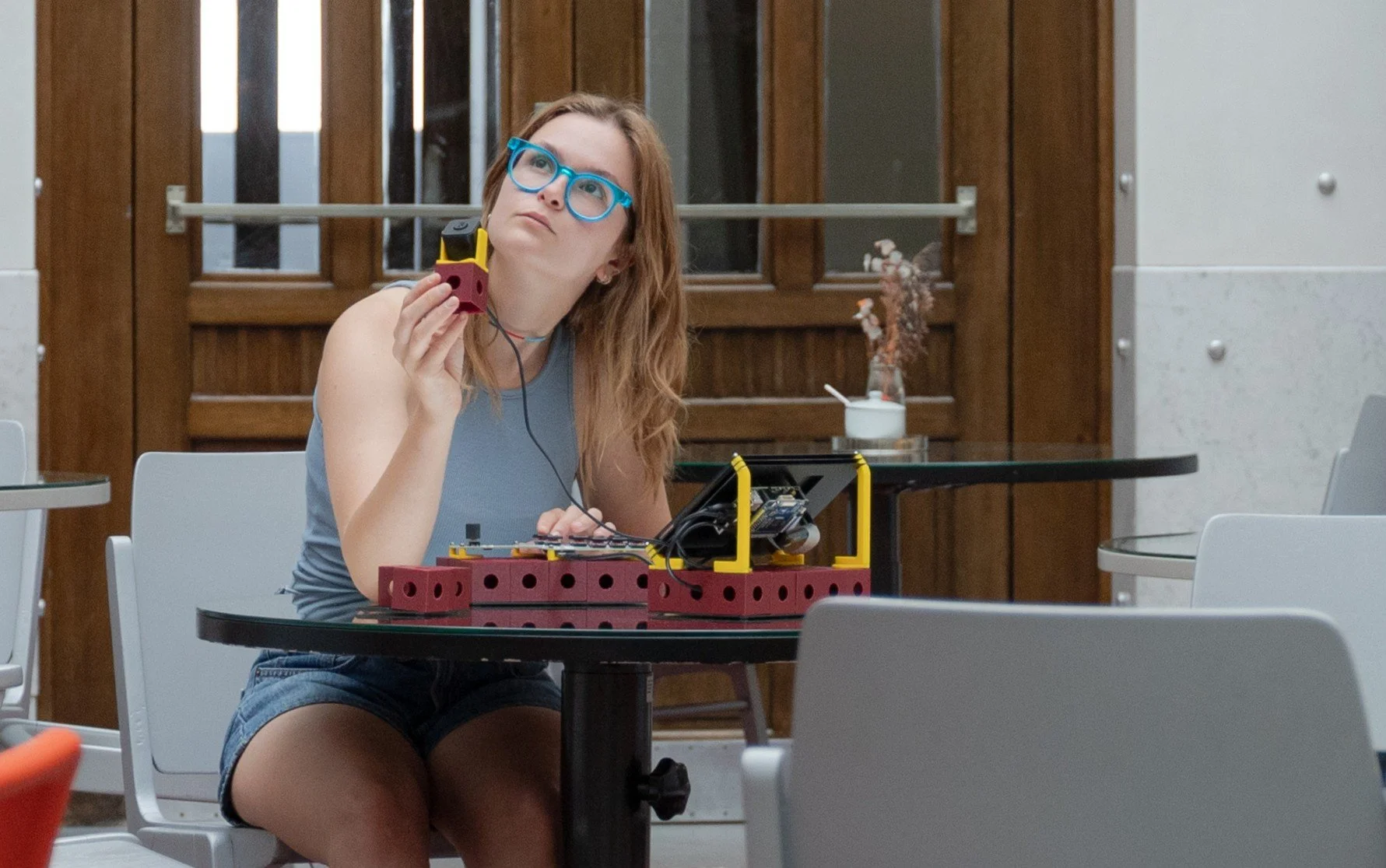
S+T+ARTS Prize 2025 Nomination 'Large Language Writer'. Lucy Li (AT), Leo Mühlfeld (AT), Alan Schiegl (AT). Photo: Fritz Enzo Kargl
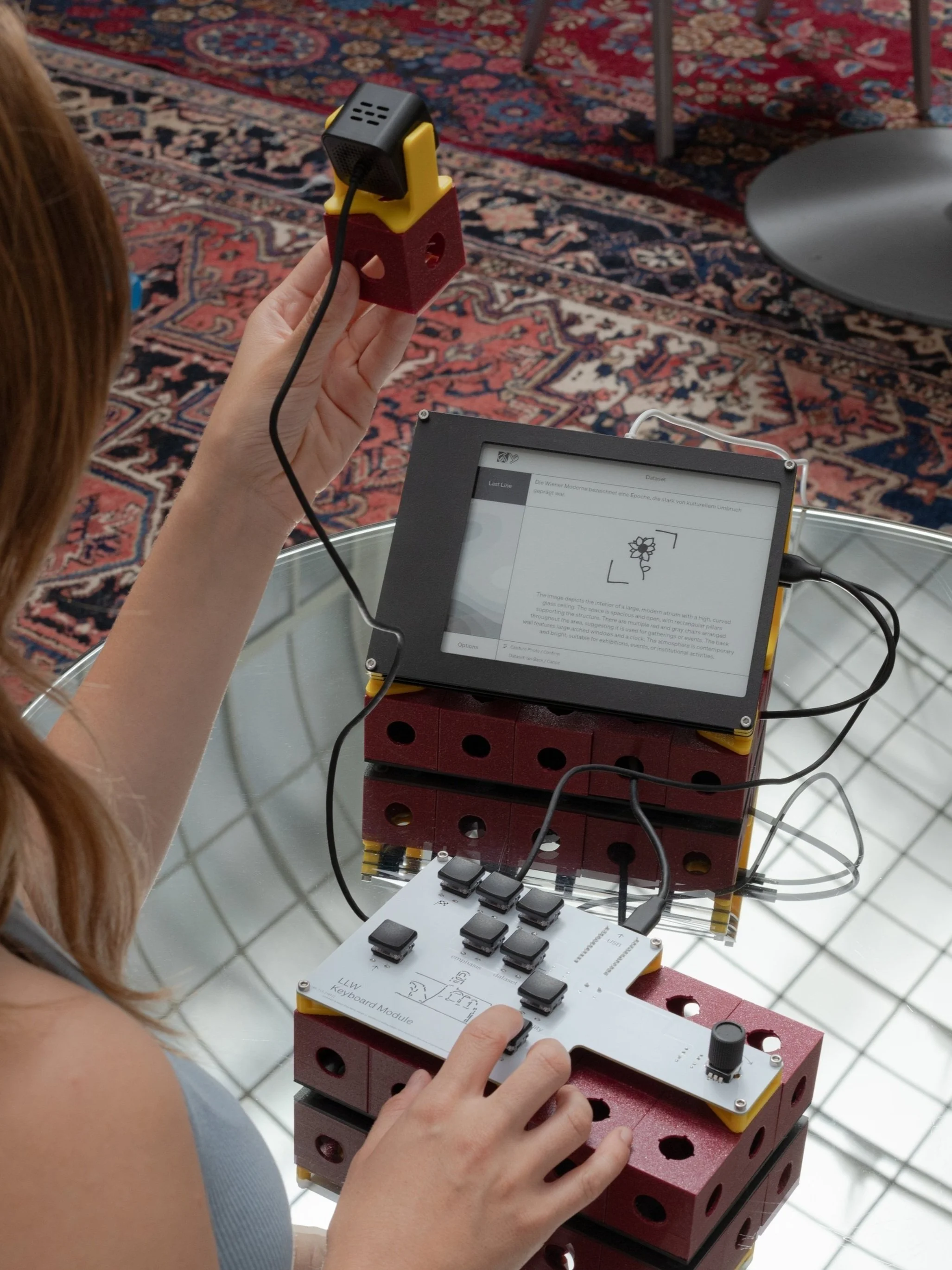
S+T+ARTS Prize 2025 Nomination 'Large Language Writer'. Lucy Li (AT), Leo Mühlfeld (AT), Alan Schiegl (AT). Photo: Fritz Enzo Kargl
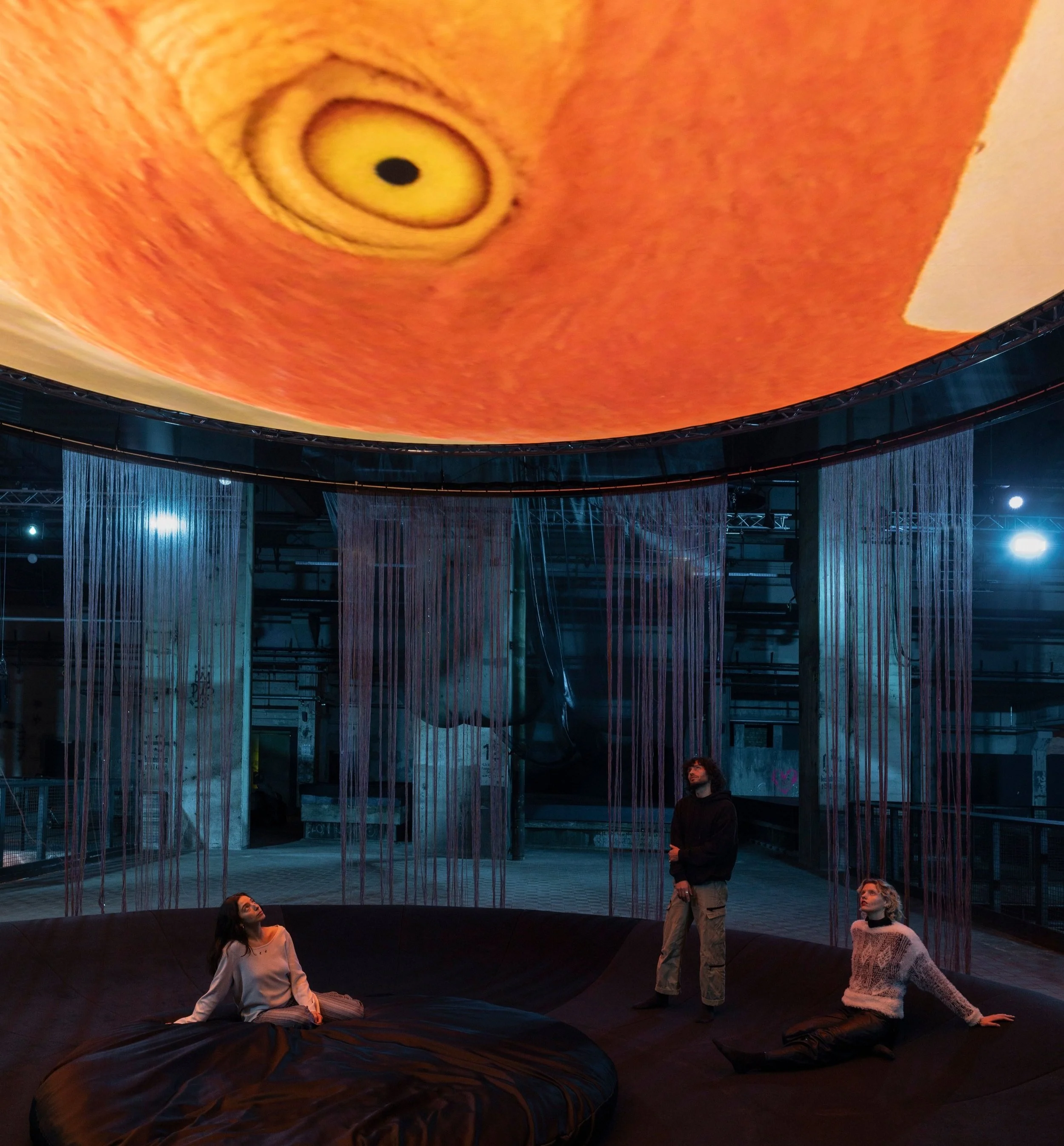
Laure Prouvost, WE FELT A STAR DYING 2025. Installation view at Kraftwerk Berlin. Commissioned by LAS Art Foundation and co-commissioned by OGR Torino. © 2025 Laure Prouvost. Photo: Andrea Rossetti © VG Bild-Kunst, Bonn 2025

Laure Prouvost, WE FELT A STAR DYING 2025. Installation view at Kraftwerk Berlin. Commissioned by LAS Art Foundation and co-commissioned by OGR Torino. © 2025 Laure Prouvost. Photo: Andrea Rossetti © VG Bild-Kunst, Bonn 2025
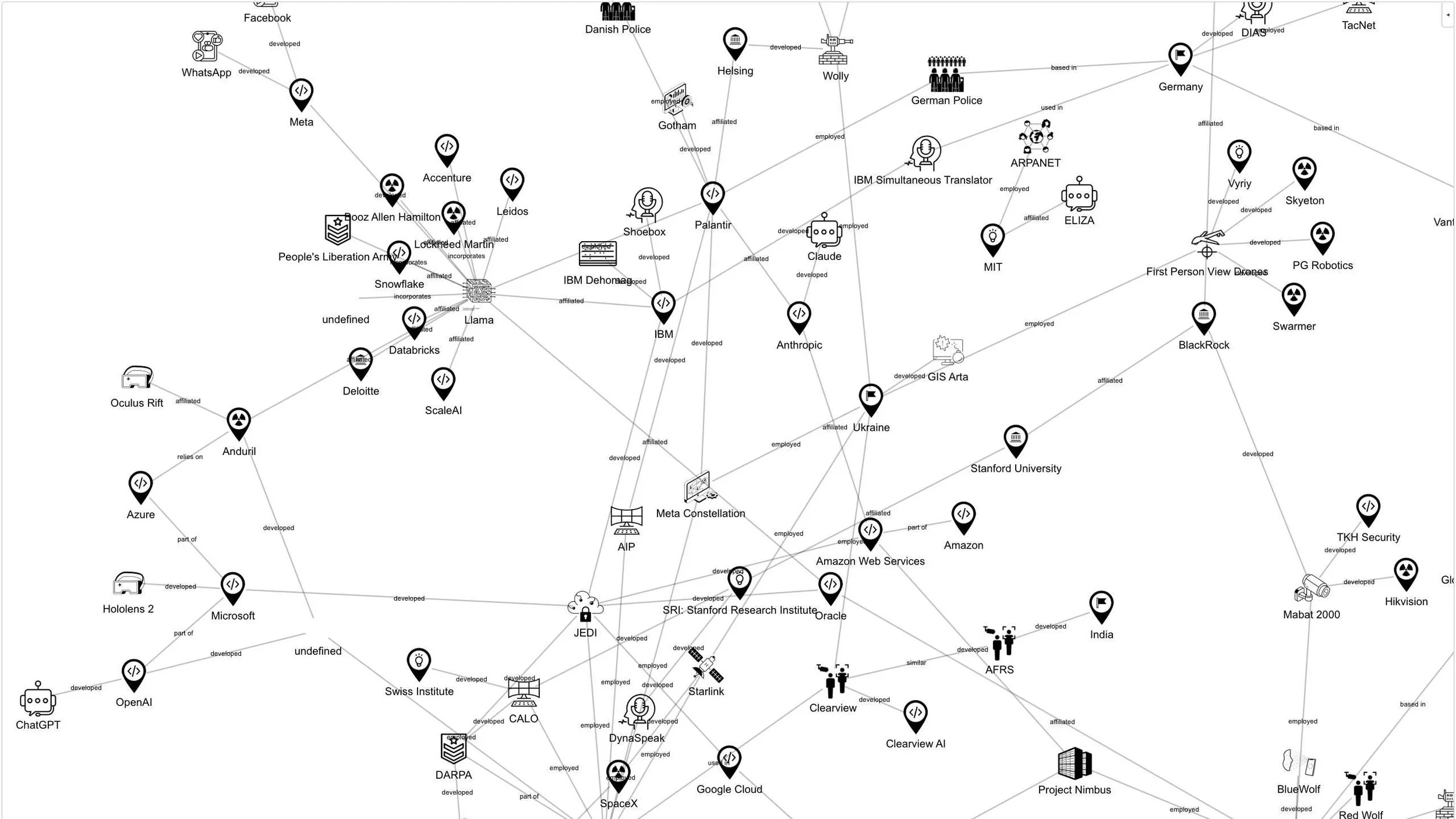
AIWarCloud@SarahCiston: Graph detail, Big tech, Ukraine. ©SarahCiston
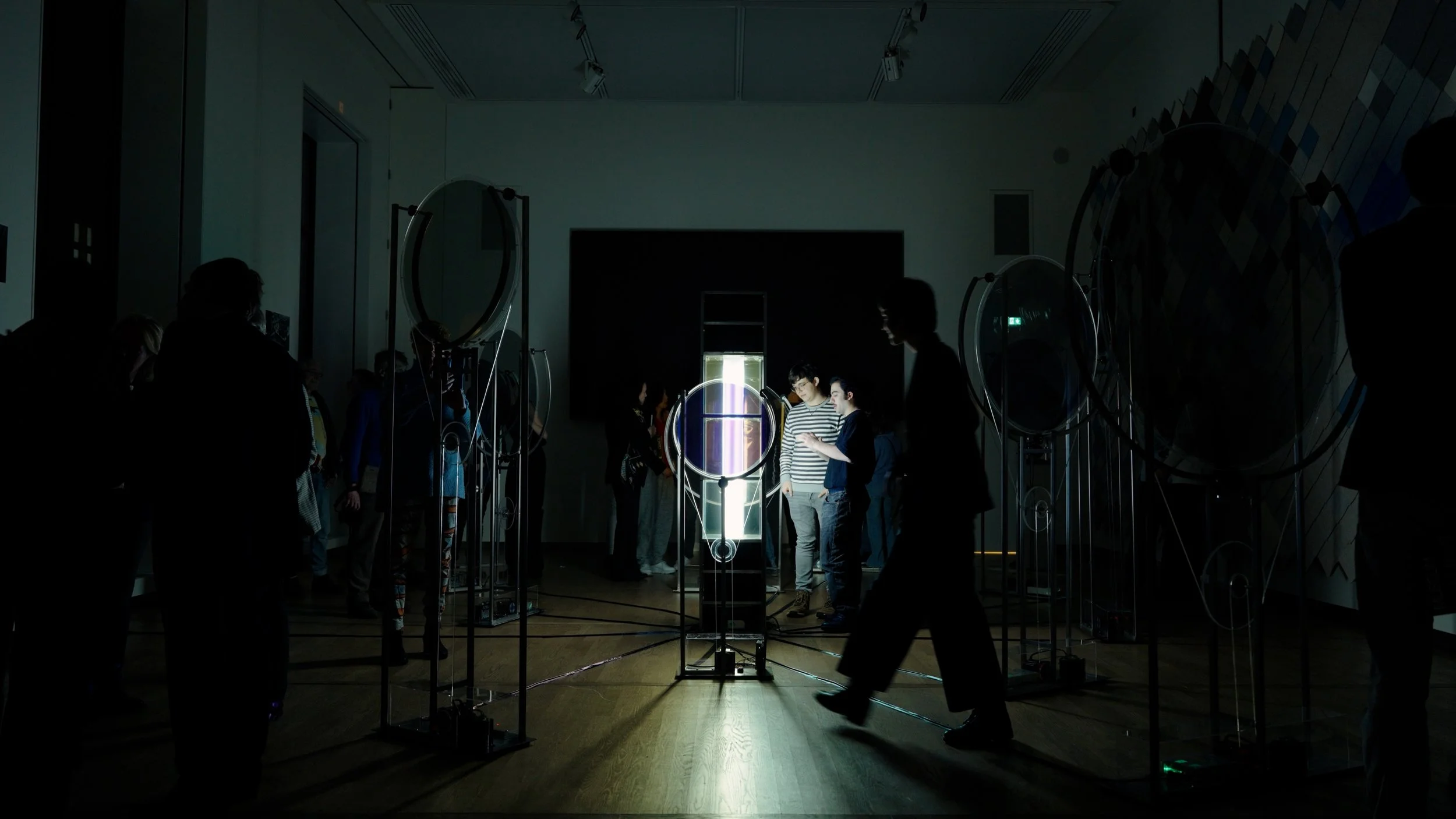
S+T+ARTS Prize 2025 Honorary Mention, 'Coexist' , Emergence Delft (NL). Photo: Emergence Delft
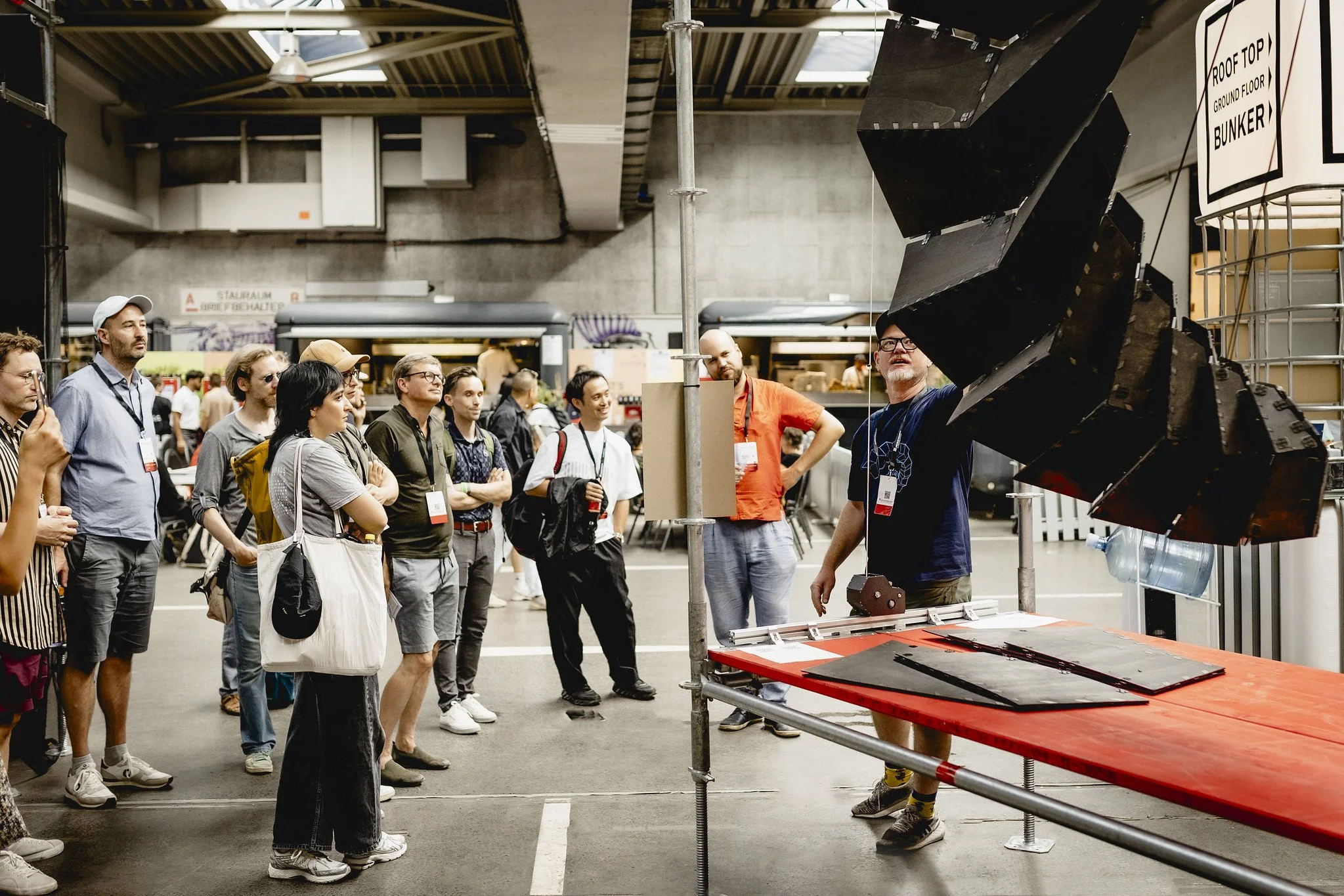
Gigantic Oribotic Spiral @ Open Futurelab / Ars Electronica Futurelab (AT), Kanata Warisaya (JP), Luca Zimmerman (CH), Structural Origami Group. Photo: Bettina Gangl
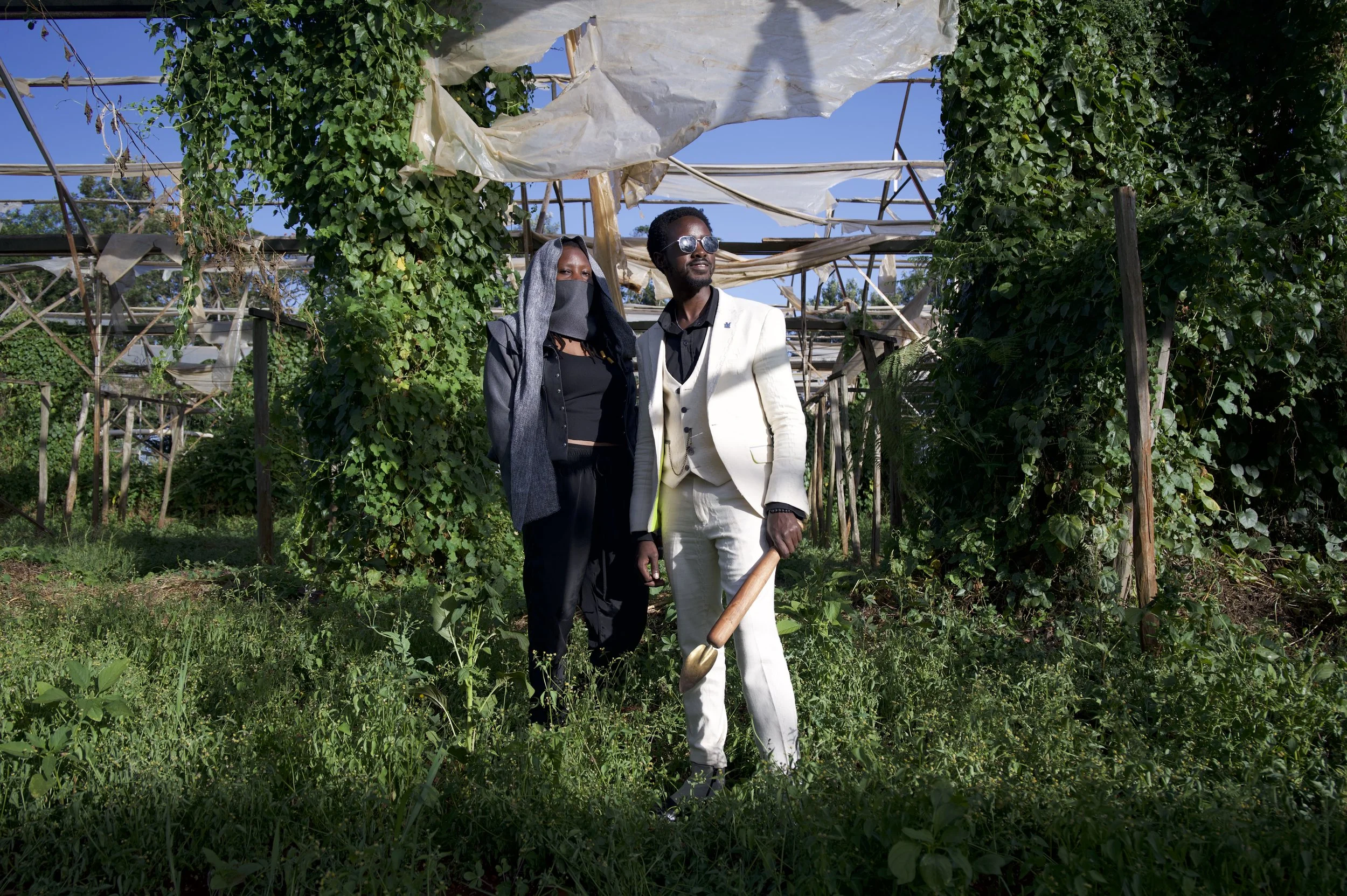
The Wild Future Lab / Kairos Futura (KE). Photo credit: The Wild Future Lab, Ajax Axe
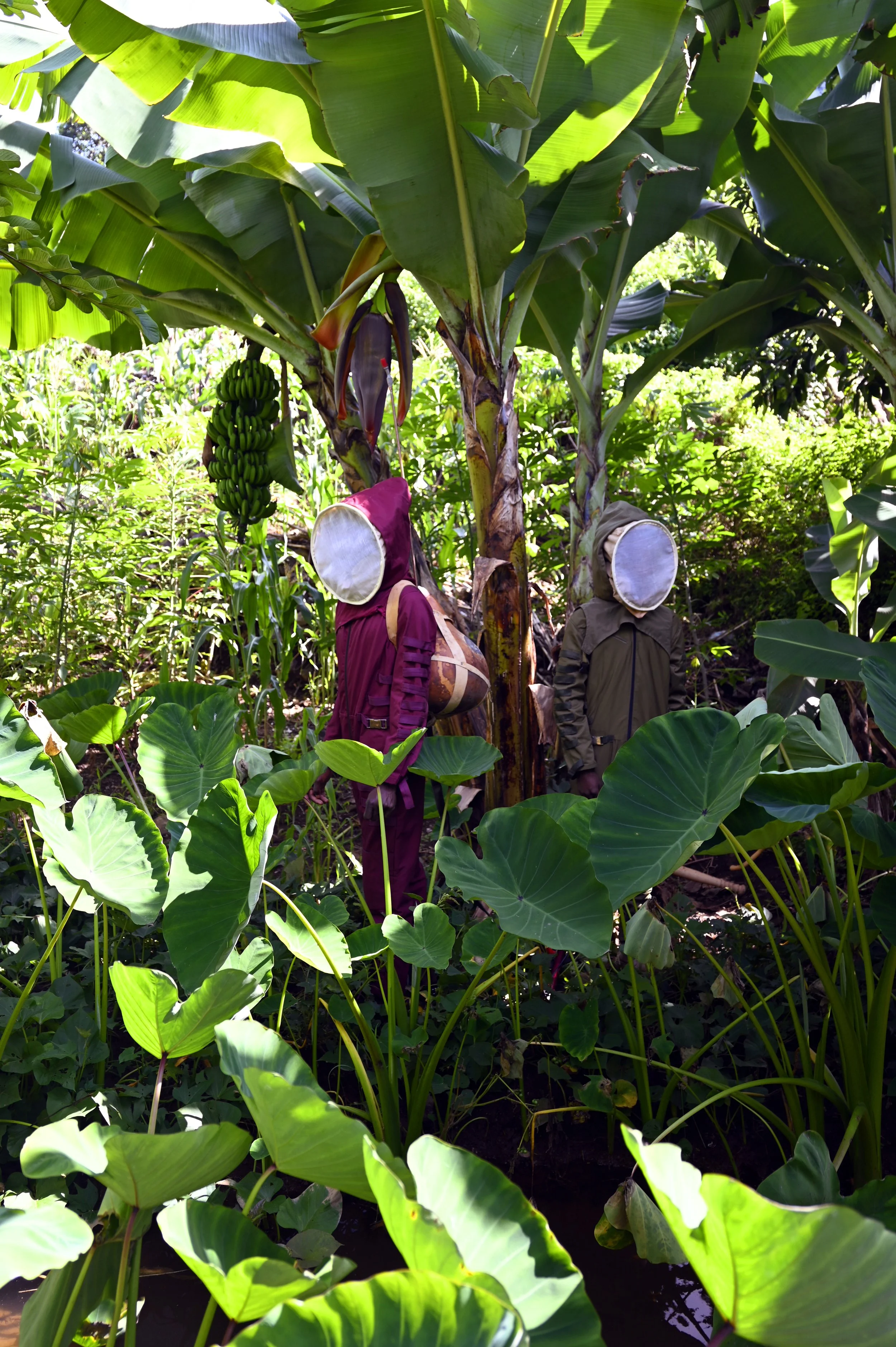
The Wild Future Lab / Kairos Futura (KE).Photo Credit: The Wild Future Lab, Ajax Axe
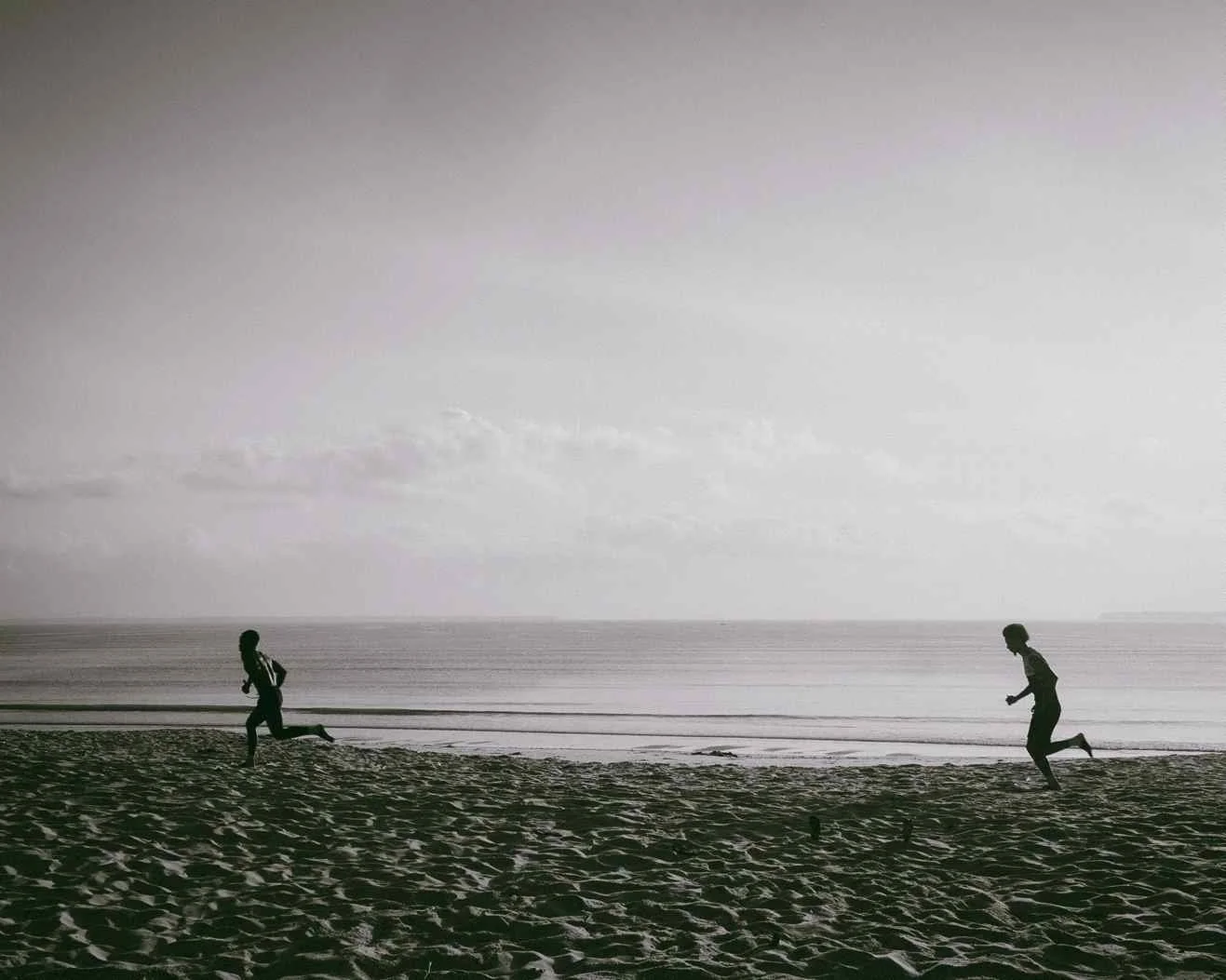
Sands Of Time@Noah Okwudini | Credits: Noah Okwudini
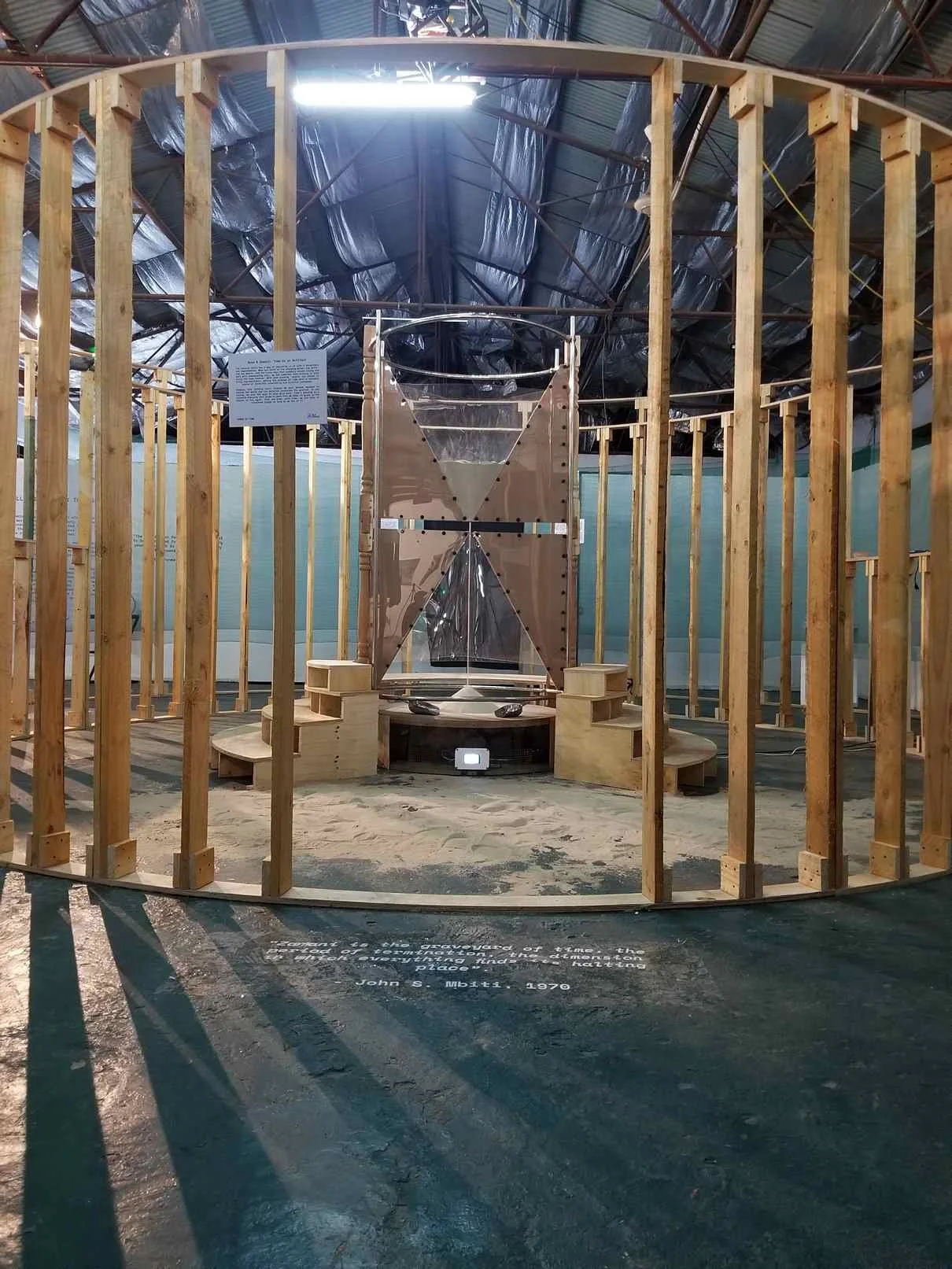
Sands Of Time: Walls We Can Walk Through Ala Praxis (NG).Photo Credits: Philip Fagbeyiro
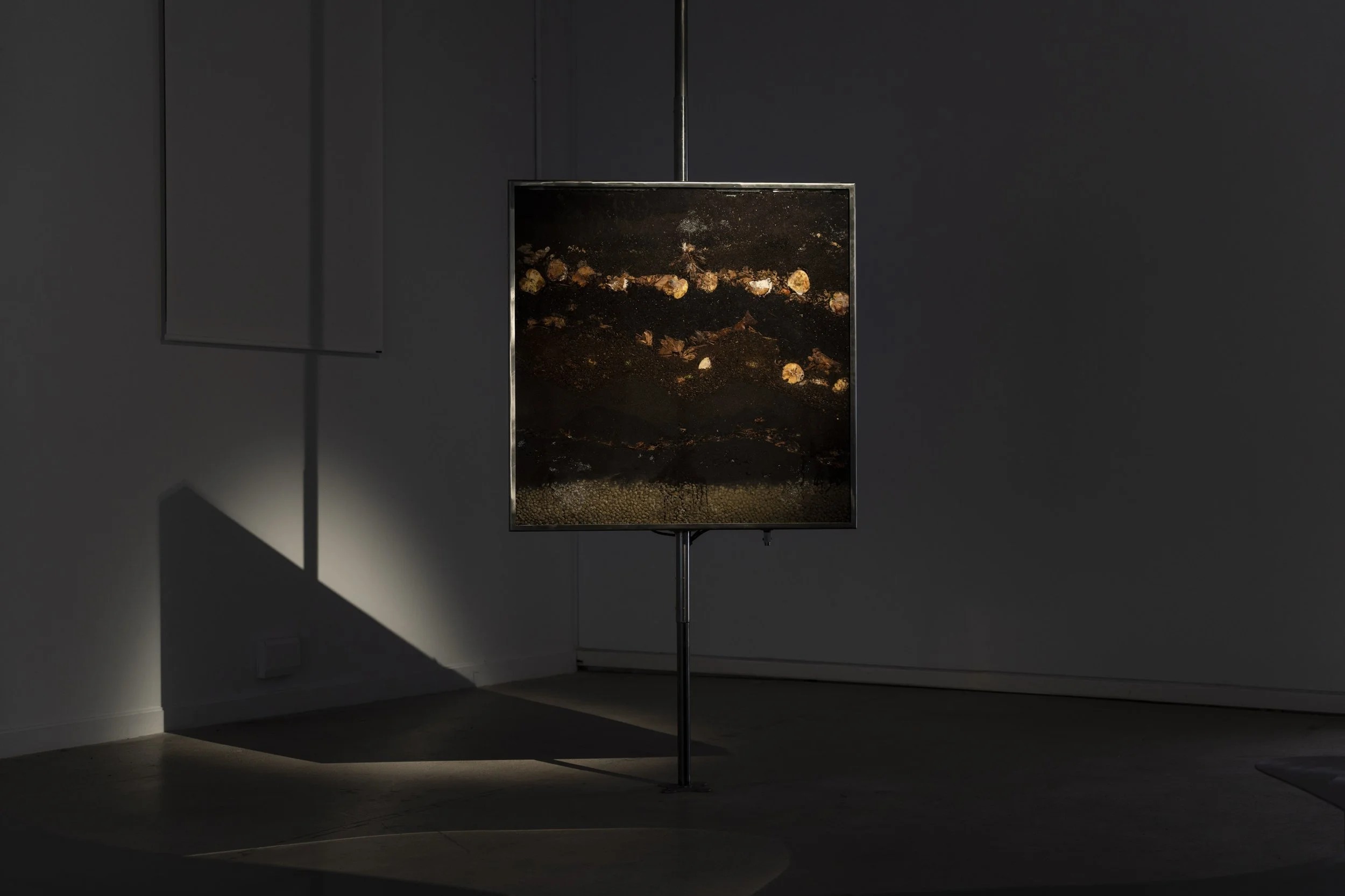
Marina Otero Verzier , Computational Compost. Photo: Mikel Blasco.
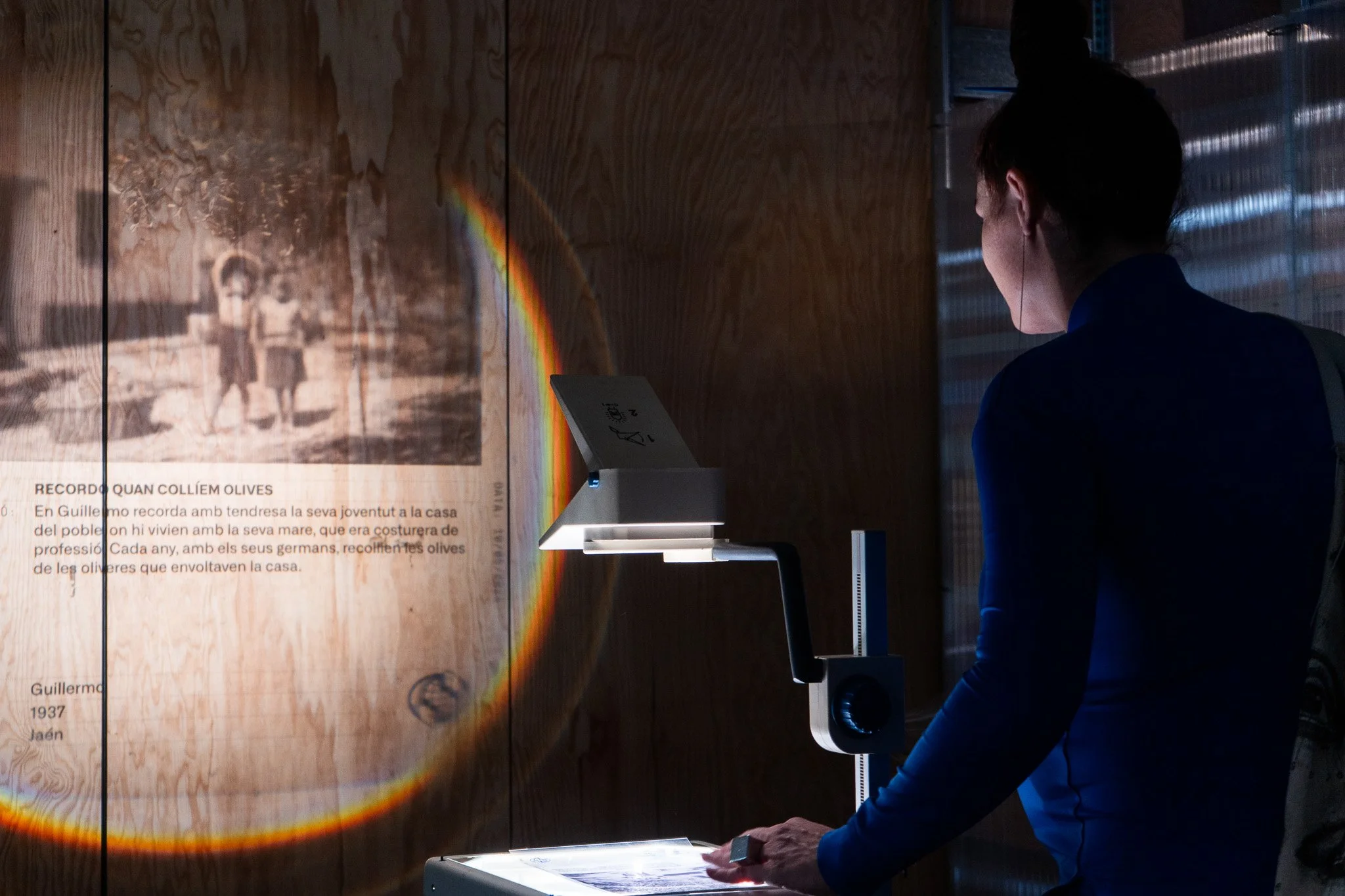
S+T+ARTS Prize 2025 Honorary Mention 'Synthetic Memories' Domestic Data Streamers (ES). Photo: Domestic Data Streamers
From AI War Clouds to Dual Futures:
Democratic Responses to Authoritarian Tech
Inspired by the STARTS Prize 2025 winners—AI War Cloud Database by Sarah Ciston and Sensing Quantum by LAS Art Foundation—this forum invites artists, scientists, policy-makers, critical technologists, and cultural workers to ask:
Who builds the infrastructure and the technological stack we live inside?
What systems of power and what politics does it serve?
And how can we reclaim its layers—material, cognitive, planetary—as sites of collective agency?
The conference is curated by Francesca Bria and José Luis de Vicente from Archipelago of Possible Futures, a growing platform connecting Europe’s cultural, scientific, and tech institutions.
In response to today’s urgent ecological and digital transitions, it offers a space for collective imagination, experimentation, and collaboration. The conference is a collaboration between Archipelago of Possible Futures, STARTS Prize 2025, EIT Culture & Creativity, E-DIH AI5Production and Ars Electronica.
From AI Wars to Dual Futures: Reclaiming Democracy in the Face of Authoritarian Tech
A Forum on Technological Sovereignty, Quantum Imagination, and the Democratic Stack
4 September 2025 – Ars Electronica Festival, Linz
Curated by Francesca Bria & José Luis de Vicente
In collaboration with STARTS Prize 2025, EIT Culture & Creativity, E-DIH AI5Production and Ars Electronica
Archipelago of Possible Futures
From AI Wars to Dual Futures: A Forum on Technological Sovereignty, Quantum Imagination, and the Democratic Stack
Curatorial Statement
In 2025, panic is no longer a moment, it is the atmosphere we live in. From algorithmic warfare to runaway AI, from surveillance infrastructures to climate tipping points, a creeping anxiety defines the public imagination.
But what if panic is not just a symptom of collapse, but a precondition for reinvention?
Archipelago of Possible Futures is a one-day forum that traverses from panic into possibility. It is a journey through the infrastructures of our present moment, the cracks in their foundations, and the imaginative blueprints of what could emerge next. The forum unfolds across three movements—Reckoning, Rebuilding, and Reimagining—as we confront the rise of authoritarian infrastructures, forge Europe's democratic alternatives, and venture into visions and speculations for future technologies.
Inspired by the STARTS Prize 2025 winners—AI War Cloud Database by Sarah Ciston and Sensing Quantum by LAS Art Foundation—this forum invites artists, scientists, policy-makers, critical technologists, and cultural workers to ask:
Who builds the infrastructure and the technological stack we live inside?
What systems of power and what politics does it serve?
And how can we reclaim its layers—material, cognitive, planetary—as sites of collective agency?
This is not a policy summit. Nor is it a traditional symposium. It is a curated choreography of high-stakes ideas, speculative infrastructures, and radical imagination—designed to provoke, connect, and equip.
AI War Cloud Database. Video @SarahCiston 2025
Session I – 11:10 – 13:15
AI War Cloud: Dual-Use Systems and the New Architecture of Power
This session opens with a confrontation with the rise of patriotic tech — an ideological and infrastructural convergence of military AI, predictive policing, surveillance capitalism, and far-right platform power.
Sarah Ciston opens with ‘AI War Cloud Database’, winner of the 2025 STARTS Grand Prize Artistic Exploration.
The project maps how everyday technologies— smartphones, databases, image recognition systems— are silently absorbed into systems of violence, from drone targeting in Gaza to ICE surveillance infrastructure and predictive policing in Europe. Ciston unpacks the civilian-to-military pipeline embedded in AI platforms, revealing how opaque infrastructures govern daily life.
Following the presentation, Ciston will enter into a curated dialogue, joined by leading voices in journalism, documentary, and critical technology. Together, they will explore the political and perceptual architectures of today’s dual-use systems.
Participants:
Klaus Uhrig — Producer, Peter Thiel Podcast
Simone Ruf — Lawyer and case coordinator, Gesellschaft für Freiheitsrechte
Julia Kloiber — Co-Founder and Managing Director, superrr Lab
Kambale Musavuli — Technologist and political analyst, Center for Research on the Congo-Kinshasa
PROGRAM
10:00 – 11:00 | Welcome Breakfast
Hosted by EIT Culture & Creativity
A soft opening for guests and participants to meet, cross paths, and situate themselves in the day’s unfolding constellation of themes.
11:00 – 11:10 | Opening Remarks
Gerfried Stocker (Ars Electronica)
Francesca Bria & José Luis de Vicente
Keynote Speaker:
Sarah Ciston — Artist and researcher
The Nebelivka Hypothesis, Forensic Architecture (UK), David Wengrow (UK) Photo: Forensic Architecture, 2023
Session II – 13:30 – 15:30
Dual-Use / Dual Futures: Reclaiming the Stack for Europe’s Commons
If Session I exposes the architectures of techno- authoritarianism, Session II turns to the work of reconstruction. The EuroStack offers a new foundation: a European technological ecosystem rooted in democratic governance, ecological principles, and the public good.
But building alternatives is not just a technical or regulatory task—it is a cultural and imaginative challenge. Infrastructure is never neutral; it shapes how we live, decide, and relate.
This session brings together artists, designers, policymakers, and technologists to explore how digital infrastructure becomes cultural infrastructure—how it can be narrated, visualised, and contested as a site of collective agency.
What would a truly public, green cloud feel like? What new rituals, aesthetics, and legal architectures are needed to reclaim Europe’s digital core—and its data—as a commons, beyond the logics of extraction and control?
Keynote Speaker:
Trevor Paglen — Artist and author
Participants:
Marina Otero Verzier — Architect and curator Domestic Data Streamers — Civic designers
Leo Muhlefeld — Writer and performer, Large Language Writer
Paul Keller — Director, Open Futures
dmstfctn – Artist duo, The Models: AI-driven interactive theatre powered by Bologna’s HPC

WE FELT A STAR DYING 2025. Installation view at Kraftwerk Berlin. Commissioned by LAS Art Foundation and co-commissioned by OGR Torino. © 2025 Laure Prouvost. Photo: Milena Wagner

AIWarCloud@SarahCiston: Graph detail, Big tech, Ukraine. ©SarahCiston

Domestic Data Streamers, Synthetic Memories, 2023. Photo credit: Photo: ©Domestic Data Streamers.

Sands Of Time@Noah Okwudini | Credits: Noah Okwudini

The Wild Future Lab / Kairos Futura (KE). Photo credit: The Wild Future Lab, Ajax Axe

Gigantic Oribotic Spiral @ Open Futurelab / Ars Electronica Futurelab (AT), Kanata Warisaya (JP), Luca Zimmerman (CH), Structural Origami Group. Photo: Bettina Gangl

The Wild Future Lab / Kairos Futura (KE).Photo Credit: The Wild Future Lab, Ajax Axe

Sarah Ciston. Artist bio photo. Photo credit:@PaigeZangoglia
Session III – 15:45 – 17:00
Entangled Futures: Quantum Poetics and the Deep Imagination
If authoritarian technologies discipline the present, and the EuroStack maps out a democratic near future, this session opens the far horizon. Quantum Poetics is a space for radical speculation—where art, science, and philosophy converge to reimagine the architectures of knowledge, sensing, and perception.
Drawing from Sensing Quantum (STARTS Grand Prize Winner for Innovative Collaboration 2025), this session explores how quantum infrastructures —uncertain, entangled, irreducible—offer not just new tools, but new ways of thinking. Participants examine how computation and cosmology, aesthetics and physics, can help us feel and prefigure systems not yet built.
We ask: How do we prototype public imaginaries at the quantum scale? What forms of cultural, scientific, and institutional experimentation are needed for an era of entangled futures?
And how might we design infrastructures that embrace uncertainty, complexity, and care?
Keynote Speaker (TBC):
Armin Linke — Artist and photographer, author of the book ‘Quantum Conditions’
Participants:
Bettina Kames — Director, LAS Art Foundation (Sensing Quantum)
Fernando Cucchietti, Data pre and Post processing Group Manager, Barcelona Supercomputing Center
Giulia Bini — Curator and Head of Arts, CERN
Robert Meisner — Earth Observation Programmes Outreach and Experience coordinator, ESA
Emma Sanders — Project Manager, Emergence Delft
Key Dates
STARTS Prize Africa Winner “The Sands Of Time” @Noah Okwudini.
Photo Credits: Noah Okwudini
September 4, 2025 — 'Archipelago of Possible Futures — From AI Wars to Dual Futures: Reclaiming Democracy in the Face of Authoritarian Tech’ Theme Symposium at Ars Electronica Festival co-organised by Archipelago of Possible Futures
September 4, 2025 — Award ceremony STARTS Prize and STARTS Prize Africa
September 3 –7, 2025 — Ars Electronica Festival ‘PANIC – yes/no’ Linz (AT)
Media Opportunities S+T+ARTS
September 3-7, 2025 - Ars Electronica, Linz (AT)
September 4, 2025 - STARTS Day Conference: From AI War Clouds to Dual Futures: Democratic Responses to Authoritarian Tech, co-organised by Archipelago of Possible Futures
September 4, 2025 - Award ceremony STARTS Prize Africa
Press Contact S+T+ARTS:
Sofia Bertilsson
sofia@artinsiderpr.com
Art Insider PR
pa@artinsiderpr.com
Institutions, partners and sponsors S+T+ARTS:
Current consortium: Ars Electronica (Coordinator, AT), INOVA+ (PT), La French Tech Grande Provence (FR), Media Solution Center Baden-Württemberg (DE), Salzburg Festival (AT), Sonar (ES), T6 Ecosystems (IT), TUD Dresden University of Technology (DE) HLRS High-Performance Computing Center Stuttgart (DE)
For editors:
Download press images and credits above. Please note that the images are free to use strictly when writing about the STARTS Prize Winners and STARTS Day Conference and Exhibition at Ars Electronica Festival 2025.
About S+T+ARTS
STARTS is about thinking out of the box and building bridges between Science, Technology and Arts.
STARTS is an initiative of the European Commission to foster alliances of science, technology, and the arts, that effectively implement a European approach to technological innovation centred on human needs and values.
Science, Technology and Arts form a nexus with an extraordinarily high potential for creative and reflective innovation. And such innovation is considered to be precisely what is called for to master the social, ecological and economic challenges that Europe is facing.
With disruptive methods of exploration and an accurate critical eye on the use of technology, artists decisively raise awareness of the societal challenges and global concerns we are tackling. The artistic practices are seen as innovative processes and have a wide-reaching potential to contribute to the development of new economic, social and business models.
ABOUT S+T+ARTS PRIZE
Grand Prize for INNOVATIVE COLLABORATION is bestowed on innovative joint ventures involving industry/technology and the arts, alliances that blaze new trails for innovation.
Grand Prize for ARTISTIC EXPLORATION honors artistic experiments and works of art that employ technology in ways that exhibit great potential to influence and change technology and how it is deployed, developed and perceived.
A yearly competition is held to single out for recognition innovative projects at the nexus of science, technology and the arts that have what it takes to make a significant impact on economic and social innovation.
The two STARTS Prize winners each receive €20,000 and are prominently featured at Ars Electronica and other events of the consortium partners INOVA+, French Tech Grand Provence, Media Solutions Center Baden-Württemberg, the High-Performance Computing Center Stuttgart, Salzburg Festival, Sonar, T6Ecosystems and Kustodie at TUD Dresden University of Technology.
About S+T+ARTS Prize Africa
With the STARTS Prize Africa, the European Union builds on the success of the renowned STARTS Prize, which has supported European innovation policy at the intersection of science, technology, and art since 2016. The STARTS Prize Africa is specifically aimed at artists and organizations that originate from, live in, or work in an African country. It honors interdisciplinary projects that address pressing challenges on the continent and offer new impulses for social, economic, or political change.
https://starts.eu/starts-prize-africa/
About Ars Electronica
The Ars Electronica Festival 2025 is funded by the City of Linz, the Federal Ministry for Arts, Culture, the Civil Service and Sport, the State of Upper Austria, as well as numerous sponsors and partner institutions. Historically closely tied together, the festival in 2025 will also be conducted in cooperation with ORF OÖ.
This year, too, the Ars Electronica Festival will be implemented as a Green Event—energy efficiency, careful waste management, circular use of material, as well as holistic sustainability are priorities. The festival thus contributes to reaching selected Sustainable Development Goals (SDGs) of the United Nations
The project is funded by the European Union under the Grant Agreement No 101135691. Views and opinions expressed are however those of the author(s) only and do not necessarily reflect those of the European Union. The European Union cannot be held responsible for them.












